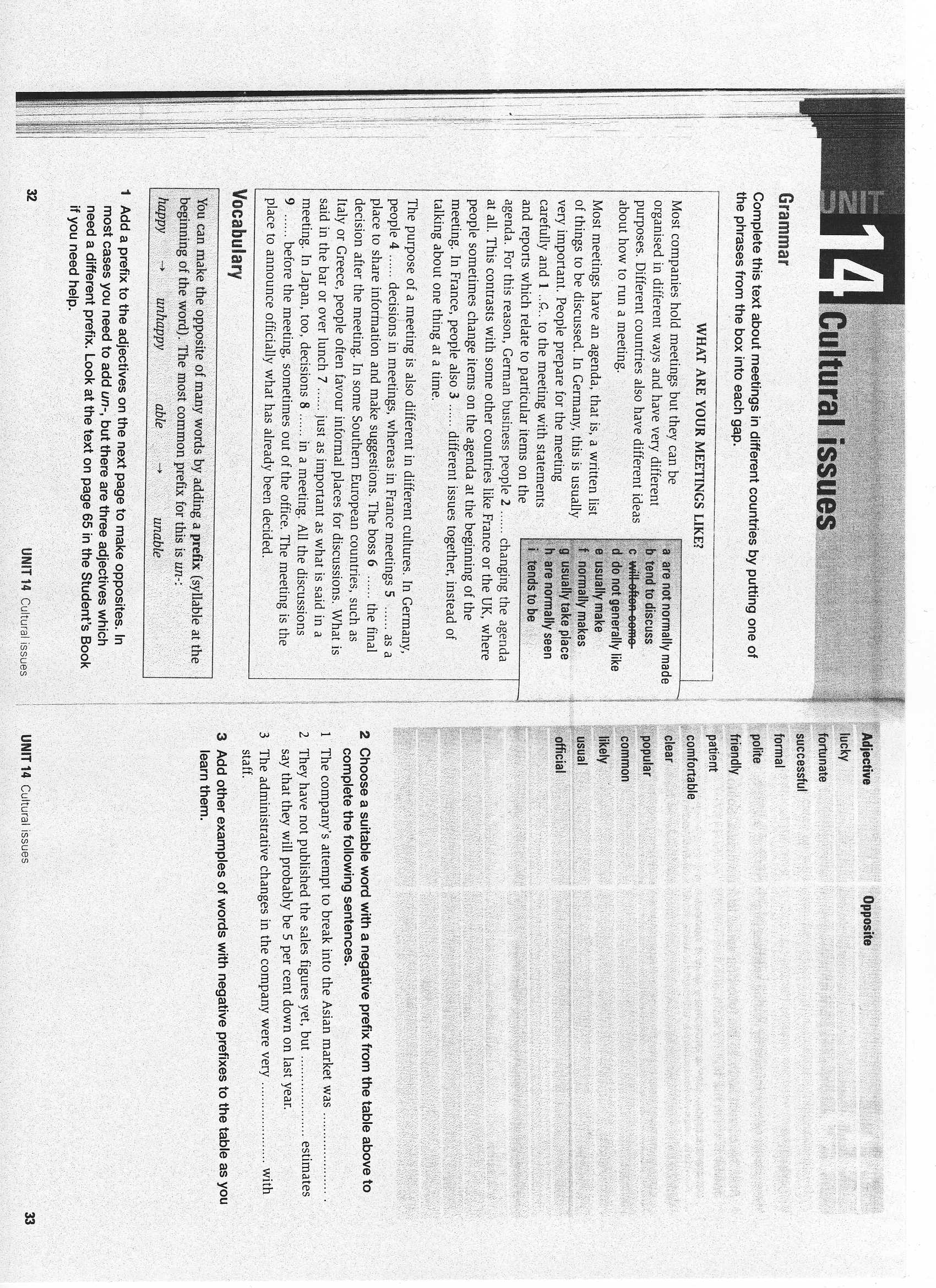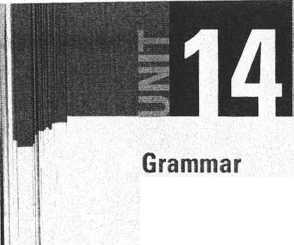img020 (24)


Cultural issues
Complete this text about meetings in different countries by putting one of the phrases from the box into each gap.
WHAT ARE YOUR MEETINGS LIKE?
Most companłes hołd meetings but they can be organised in different ways and have very different purposes. Different countries also have different ideas about how to run a meeting.
Most meetings have an agenda, that is, a written list of things to be discussed. In Germany, this is usually very important. People prepare for the meeting carefully and 1 ..£.. to the meeting with statements and reports which relate to particular items on the
agenda. For this reason, German business people 2......changing the agenda
at all. This contrasts with sonie other countries like France or the UK, where people sometimes change items on the agenda at the beginning of the
meeting. In France, people also 3......different issues together, instead of
talking about one thing at a time.
The purpose of a meeting is also different in different cultures. In Germany,
people 4......decisions in meetings, whereas in France meetings 5 ......as a
place to share information and make suggestions. The boss 6 ......the finał
ff
I, li'
a are not normally madę b tend to discuss
c will OftOfV OOfftO-
d do not generally like e usuallymake f normally makes g usuallytake place h are normally seen i tends to be
decision after the meeting. In some Southern European countries, such as Italy or Greece, people often favour informal places for discussions. What is
said in the bar or over lunch 7......just as important as what is said in a
meeting. In Japan, too, decisions 8......in a meeting. All the discussions
9 ......before the meeting, sometimes out of the office. The meeting is the
place to announce officially what has already been decided.
Vocabulary
You can make the opposite of many words by adding a prefix (syllable at the beginning of the word). The most common prefix for this is nn-:
happy -* anhappy able -► unable
1 Add a prefix to the adjectives on the next page to make opposites. In most cases you need to add un-, but there are three adjectives which need a different prefix. Look at the text on page 65 in the Studenfs Book if you need help.
Adjective Opposite
lucky
fortunate
successful
formal
polite
friendly
patient
comfortable
elear
popular
common
likely
usual
official
2 Choose a suitable word with a negative prefix from the table above to
complete the following sentences.
1 The company’s attempt to break into the Asian market was.....................
2 They have not published the sales figures yet, but.....................estimates
say that they will probably be 5 per cent down on last year.
3 The administrative changes in the company were very.....................with
staff.
3 Add other examples of words with negative prefixes to the table as you learn them.
UNIT 14 Cultural issues 33
Wyszukiwarka
Podobne podstrony:
skanowanie0025 (24) Knowledge about culture and society has been generally recognized as one of the
I. Complete ihe extracts about Customer Relationship Management. You do not need all the words liste
image002 “There has never been a collection like this before” James Blish. . . and there hasn’t. Thi
best direction for the town’s development or help to choose one of the several alternatives of this
File0032 a 1 Read the text and correct the sentences. I 1 Tom Hanks is not very rich. I 2 You ve Got
"One of the most important books l ve ever read—an indispensable guide to thinking clearly abou
hovercraft The British Hovercraft Corporation s SR.N4, one of the largest air-cushion vehicles (abo
Member This is to certify thatDaria Katarzyna Dziamska was admitted a Member of the Association on 1
Fellow This is to certify thatDaria Katarzyna Dziamska was admitted a fellow of the Association on 1
CCF20121215�001 Section E ReferencePhonemic symbols for consonants Write one of the two phonemic sym
klawiso Text Services Settings Default Input Language Select one of the installed input languages to
więcej podobnych podstron